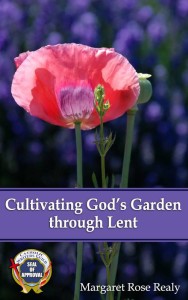The Power of The Cross: Embracing Peace & Unrest
By Kimberly Novak
I don’t know about you, but this season of Lent felt very long to me. It could be because I gave up coffee, and I’m undercaffeinated. Quite possibly though, if Lent has felt long for you, it is most likely because, over the past several weeks, we have sacrificed and taken our sufferings to the cross.
As we prepare for the cross, our prayers are heavy, burdens are recognized and lifted, reconciliation is hoped for, and the realization of Jesus’ death is imminent. All of which are heavy, draining, and exhausting to our prayer life.
But we made it, and today is Good Friday, a day in which some churches allow us to kiss our hand and touch the cross, paying our highest honor to our Lord for His love and sacrifice. This loving gesture enables us to leave our sufferings on the crucifix through our physical touch. Often, when we can bring into action spiritual symbolism, like touching the cross, it resonates deeper within us and brings us closer to God in that moment.
Venerating the cross is an opportunity to accept a commission from the Lord in this blessed moment. If your church allows, kiss your hand and touch the cross; otherwise, you can whisper to God in your heart.
Some ways this can be accomplished are:
- If there is something you struggled to surrender during this Lenten season, “Leave it at the cross.”
- Surrender any regrets of failed Lenten promises, and “Kiss or whisper them to God.”
- Prayerfully share your deepest need at the cross and “Kiss or whisper it to God.”
- Prayerfully accept God’s call and “Open your heart to God.”
Unfortunately, not all churches incorporate this gesture into the Good Friday service. In that case, a simple, imaginative prayer can be just as intimate.
I’ve been anticipating this day throughout Lent, with an expectant wonder of where my emotions will take me. After I suffered a traumatic brain injury a year ago, God gave me visions of His crown of thorns, which both comforted me and brought me peace. I knew God had not left me alone in those first two days, and the visions were His way of letting me know He was there. Shortly after those visions, I met with my pastor to try to gain insight into why God blessed me so richly. His words of encouragement were to pray for discernment into what God wants me to do with it.
Since then, when I see the image of Jesus’ crown, I can only wonder where God is leading me. Looking upon the crown brings me peace or unrest, depending on what is happening in my life. For example, when I am anxious or need God’s presence, looking upon His crown and the reminder of His sacrifice is calming. If the image of the crown is graphic, showing His blood, it brings a sense of unsettledness and anticipation, as if this is a sign that something not so pleasant is on the horizon.
I’ll never forget the feeling of surrender when God showed himself to me through his crown of thorns. Feeling His love and peace in such a chaotic moment was a precious gift. Jesus’ gift to us on the cross signifies the acceptance of suffering, hope, and a willingness to bear burdens. The same is true for us when we are up against the sufferings of this world, just as I had been through that traumatic injury.
I have not been given any lightbulb moments other than to take opportunities like this one and briefly share the experience when appropriate. I eagerly await my turn on Good Friday, placing my hand physically or imaginatively on the cross and offering up the blessing of my visions for God’s glory! I pray for the openness, vulnerability, humility, and courage to accept His call.
I pray for blessings on you and your family on this Blessed day. May you be open and willing to accept God’s call, bringing His light and love into your hearts and homes. May God richly bless you this Easter and throughout the year.
Be blessed & Happy Easter,
Kimberly
©️ Kimberly Novak 2025
Edited by Janet Tamez








